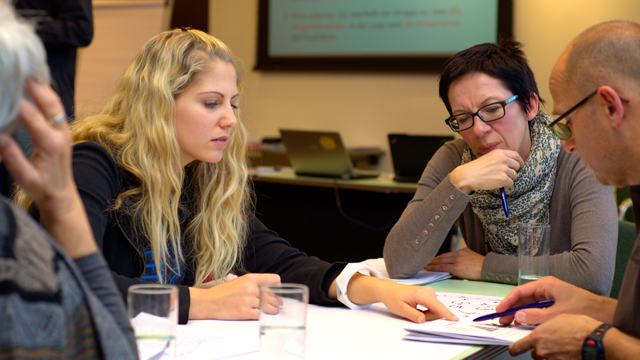On November 7, Virginians will head to the polls to elect a new governor, lieutenant governor, attorney general, and all one hundred members of the Virginia House of Delegates. Between now and then, Family Advocate will examine a number of challenges facing Virginia’s children that voters can use to evaluate candidates and learn about their positions during campaign season.
______________________________________________________________________
Ask any teacher or school administrator about their greatest challenges on the job, and you are likely to hear something about discipline. When kids act out at school and disrupt the learning environment for their peers, schools have to take action.
The type of action taken and who takes it has changed over time. Zero-tolerance policies are slowly giving way to multi-layered approaches to school discipline, recognizing that one size does not fit all.
Virginia’s state lawmakers grappled with the issue of school suspensions during the 2017 General Assembly session, ultimately deciding not to make significant changes this year. But many legislators are passionate about trying to improve academic success in schools by finding better ways to address school discipline, so it’s likely to be a hot topic in the 2018 legislative session.
Because of this, asking candidates running for the House of Delegates – as well as candidates for governor, lieutenant governor, and attorney general – about their views on handling school discipline is timely.
Virginia schools often use suspension as a means of handling discipline issues. In the 2014-15 school year, 123,000 Virginia students experienced short-term suspensions (one to ten days), and 3,000 experienced long-term suspensions (eleven to 365 days). Most of these suspensions were for non-violent, relatively minor infractions. Of note, suspensions start early – one out of every five students suspended was in pre-K to fifth grade. That rate includes 300 preschoolers.
Research shows that when children miss school, they are more likely to fall behind academically and become more disconnected from school. Realizing this approach hampers academic achievement, many Virginia school districts are adopting different systems of school discipline to reduce the use of suspensions. The Virginia Department of Education helps school divisions implement these alternatives through an initiative called Virginia Tiered Systems of Support (vtss-ric.org).
In Henrico County, Tuckahoe Middle School (TMS) is one school which has adopted a discipline system based on shifting the culture of the school to ensure it is a positive learning environment for all students. TMS uses a version of Positive Behavioral Interventions and Supports (PBIS), an evidence-based approach to improving school culture. According to Principal Ann Greene, key components of their model include: clearly articulating, in positive terms and in visible locations, the behavior that is expected in every classroom and cafeteria; implementing a culture that develops school pride and celebrates positive student achievement and behavior through awards, pep rallies, and other forms of recognition; implementing tiers of intervention so teachers have the tools to handle relatively minor classroom misbehavior without involving school administration; and forming a committee of teachers and other staff who are in charge of implementing the system and training their peers.
“In middle school, we need to make sure kids are physically safe, emotionally safe, and that school is socially a safe place,” said Greene. “We also try to put things in place that make middle school fun and give students a sense of pride in their school.”
The approach seems to be having a positive effect on TMS’s rates of suspension. In the three years the school has implemented PBIS, the number of out-of-school suspensions has dropped by 48 percent.
TMS and Henrico County are by no means alone in the Richmond area in embracing positive school climate and alternatives to suspension. Chesterfield County schools also use PBIS as a way of reducing student referrals to law enforcement, a practice dubbed “the school to prison pipeline.”
Chesterfield County School Board chair Javaid Siddiqi said the county has worked hard to expand access to intervention programs that are helping change students’ lives. “Our staff members have done a phenomenal job implementing these programs and building strong relationships with students. While other parts of our country are struggling with the ‘school to prison pipeline,’ we’re actually bucking the trend in Chesterfield County,” said Siddiqi. “During the last three years, we’ve seen a 67 percent decrease in the number of students involved in disruptive incidents. We’ve seen a 71.5 percent decrease in the number of incidents, period.”
Election season is the perfect time to ask candidates what they think about school discipline policies. After all, these officials may be the ones making the decisions next year about statewide suspension policies and alternative strategies for improving your child’s school climate. To find out who’s running in your district and statewide, go to vpap.org and enter your address.
And finally, here are some questions you might ask a candidate for delegate who knocks on your door, or a candidate for statewide office at a forum:
• What do you think about Virginia’s use of school suspension to discipline children who disturb the school environment?
• What is your view on investing in programs that promote alternatives to suspension?
• If elected, what would you do to ensure that schools are effective learning environments for all children?




